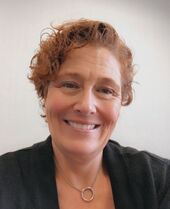|
An interview with Megan DeNubila, Provider Relations Manager, and Jessica Alward, Academic Detailer, from the Bureau of Infectious Disease Control with the state of New Hampshire. Their mission is to improve public health by promoting evidence-based practices in the areas of infection prevention, screening, testing, and management for HIV, TB, STD/STIs, and Hepatitis. by Winnie Ho, Program Coordinator Tags: Detailing Visits, HIV/AIDS, Rural AD Programs, Sexual Health, Stigma  Winnie: Thank you both again for joining us today! In one of our past technical assistance discussions together, we’ve gone into depth about some common clinician stigma and barriers. In particular, you shared with us that because New Hampshire was a lower incidence state for HIV, you would encounter clinicians who felt that that particular issue didn’t really fall within their patient population. It’s a common barrier we hear from many detailing programs, whether they address opioid use disorder (OUD) or infectious diseases. Can you go into more depth about your experiences with this phenomenon, and how you’ve addressed it? Megan: Providers are extremely busy, and they’re often expected to be an expert on so many topics. Our program helps bring providers filter through new information so they can start to bring it up with their patients. By walking them through the best practices, the recommendations, and local and state-specific data, we can show them that it’s something that is impacting their patient population. In addition, one of the things that stuck with me from the NaRCAD training we attended was that because there’s so much new information, providers would be expected to read up to 17 papers a day just to stay current. Something like HIV would be one of many things that providers are concerned with on a daily basis. Our job is to help bring the most relevant and evidence-based information to the surface for them and their patients.  Jess: Megan is completely right on this! I’m in provider offices a lot. What I hear is that they often feel like they're just treading water and not able to keep up with new information. What we try to do is bring that info to them in a way that doesn’t feel like just one more thing to squeeze into a day. When we talk to them about stigma, we don’t want to start there. We want to start with some easy and really useful information and tools that will make their job easier. By doing that work first, they feel like the precious time they are giving to us is worth it. After a couple visits, emails, or phone connections have happened, that's the time to bring up new approaches and topics. Winnie: I really appreciate that your lens on this barrier embodies a ‘How do we best support you?’ attitude. The goal of academic detailing is to navigate and close knowledge gaps in hopes of changing clinician behavior. Sharing knowledge and having difficult conversations is our best tools to address clinician stigma and discomfort. It’s not a battle against them and certainly the goal isn’t to shame clinicians. This is a collaborative operation to improve health outcomes.  Megan: Right, in the end, our mission is to close health inequities altogether. If I were a clinician and wasn't comfortable or familiar with best practices for preventing HIV, then I might feel a high level of hesitation trying to broach something like taking a sexual history from my patient. But if it’s something that I get more comfortable with, I’m more likely to bring it up and ask the right questions. Ultimately, we’re trying to build a relationship with the provider so they see us as a resource when a new practice, tool, or clinical guideline comes out. They can then use those tools and information to address stigma that a patient may be experiencing. Providers constantly have new information and guidelines thrown at them, and we would like to help make it easier for them to take that information and apply it in their daily work.  Jess: Whenever I address something uncomfortable with a provider, stigma or otherwise, I try to create an environment where we can work collaboratively on the issue and the provider feels as though I am a resource for them. I will say something like, ‘the last we talked, you mentioned this to me and it really got me thinking….” Or “I was talking with a colleague the other day about….” Then I will find a way to circle back around to the original topic. By approaching the topic in this manner allows them to feel we are a partner and have a shared goal. Winnie: I want to circle back to your team’s mission of addressing health inequities. Inequity is the core of why we discuss things like stigma and discomfort. We need to approach clinician stigma with a human approach, but we also need to address the very real impact that it can have on patient health outcomes.  Megan: In a mostly rural state like New Hampshire, healthcare access is limited to begin with, and clinician stigma could drive patients who need help to either forego care or have to travel very far to seek care that they are comfortable with. We know providers want the best outcomes for their patients, and through detailing, we want to help the providers achieve those outcomes. Looking at potential stigma is one of the keys to making sure we address health inequities. Winnie: A lot of these experiences about clinician stigma are anecdotal, but as you just outlined, they have a very real impact on health outcomes. From our previous call, we have discussed and imagined a tracking tool for these encounters with clinician stigma and barriers. What would you find useful about a tracking tool like this, and what would you hope to learn from the data?  Megan: A tracking tool would help us better understand and represent the stigmatic responses that are out there. It would help us focus our efforts to help a provider address stigma in their practice. Anecdotes are helpful, but it can be hard to grasp. We don’t want to make decisions by theorizing what patients are experiencing. As a small state program with limited resources, this would help us optimize our response and to make sure we’re heading in the right direction by seeing if stigmatic behaviors change. Winnie: It would be extremely exciting to see a tool like this become available and specialized for the hundreds of detailers who do this work. Megan: Yes, it’s a theoretical tool at the moment, but we were in discussions prior to COVID-19 about how to develop it. It would be amazing to see programs collaborate on something like this. I can only imagine how much further we’ll go with that as a resource. Biography. Megan DeNubila is the Provider Relations Manager for the Bureau of Infectious Disease Control, New Hampshire Division of Public Health Services. She has been leading the Public Health Education and Detailing team since August of 2018. Megan has over 8 years of public health experience in capacity building, coalition development, and community health. She earned her Master of Public Health degree from the Boston University School of Public Health with a concentration in Maternal and Child Health in 2016/2017 and her Bachelor of Arts degree in Health: Science, Society and Policy from Brandeis University in 2012.  Biography. Jessica Alward has been with the State of New Hampshire Division of Public Health Services for almost two years and recently earned her MS in Homeland Security and Emergency Management. With a background in education and training, she works full time as an academic detailer all over the state. In her spare time she enjoys directing community theatre productions, running and hiking. She is married to Scott and mom to two grown sons. Comments are closed.
|
Highlighting Best PracticesWe highlight what's working in clinical education through interviews, features, event recaps, and guest blogs, offering clinical educators the chance to share successes and lessons learned from around the country & beyond. Search Archives
|
